
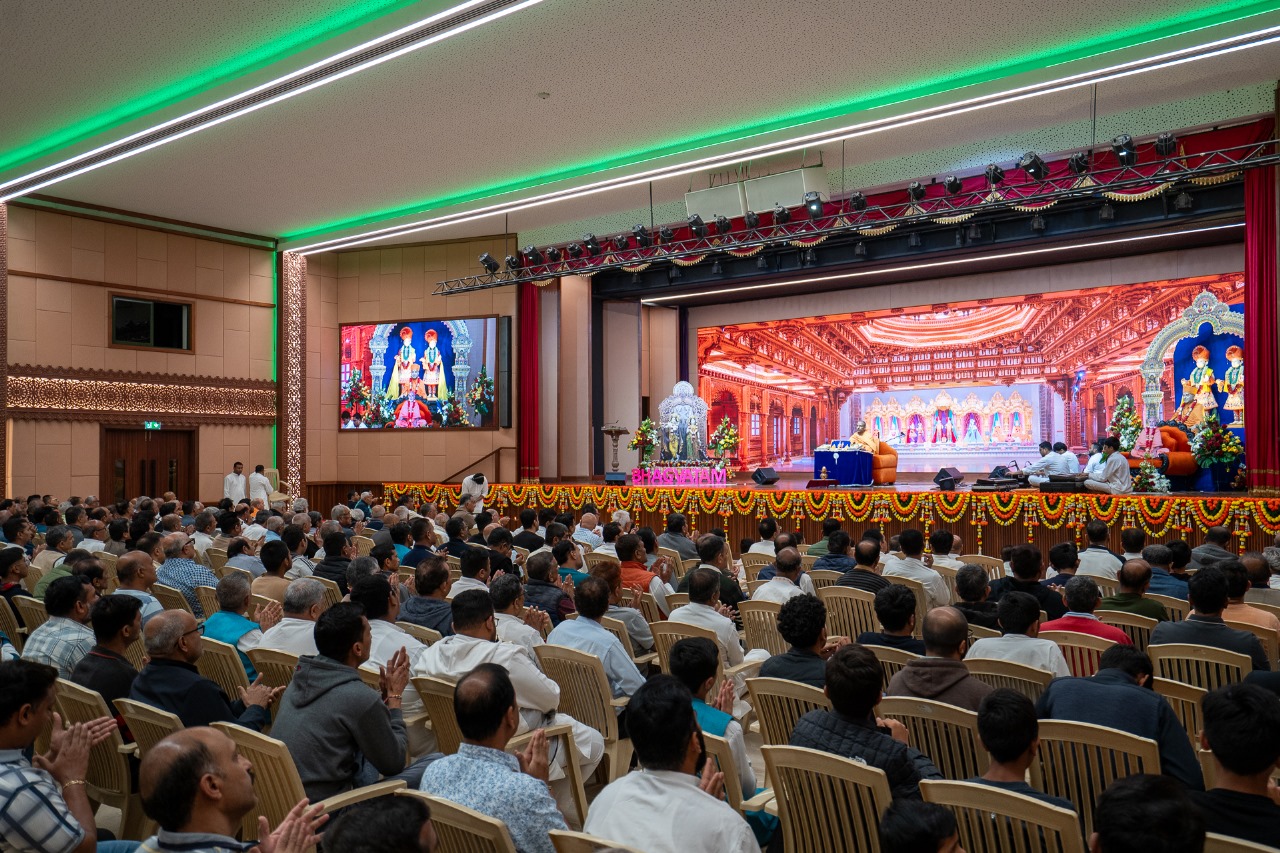 Devotees listening to an inspiring discourse on Bhagwat from Pujya Tyagvatsal Swami on Sunday, August 10, 2025, at BAPS Swaminarayan Mandir, Nairobi./MOSES MWANGI
Devotees listening to an inspiring discourse on Bhagwat from Pujya Tyagvatsal Swami on Sunday, August 10, 2025, at BAPS Swaminarayan Mandir, Nairobi./MOSES MWANGIThe BAPS Shri Swaminarayan Mandir in Nairobi has come alive this August as hundreds of devotees gather daily for a special nine-day spiritual discourse by Pujya Tyagvatsal Swami, a respected religious teacher known for his deep knowledge of Sanatan Vedic scriptures.
The series of teachings, which began on August 9, 2025,
focuses on the Shrimad Bhagwat Mahapuran, one of Hinduism’s most revered texts,
and coincides with the sacred Hindu month of Shravan.
For the Hindu community in Nairobi, the timing could not be
more meaningful.
Shravan, which falls between July and August, is considered one of the most auspicious months in the Hindu calendar.
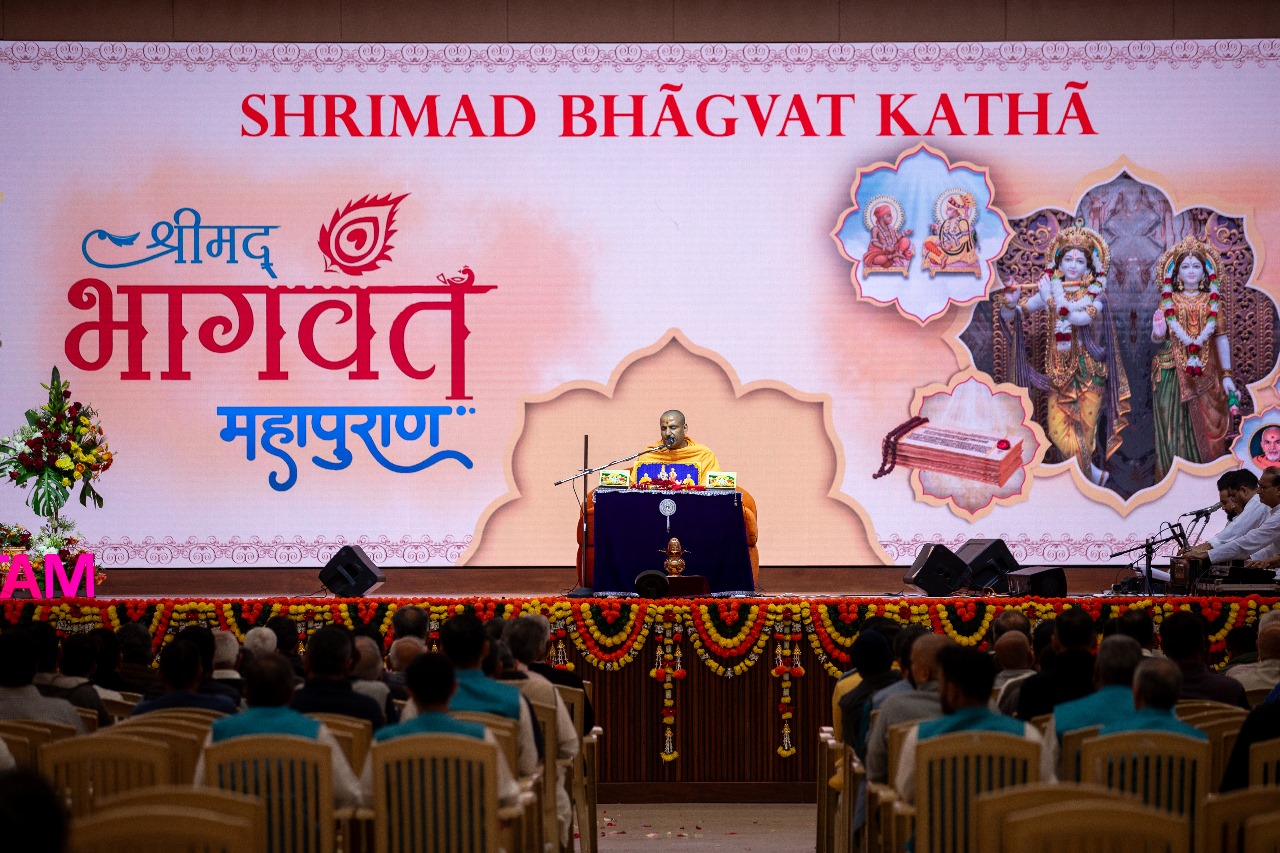 Pujya Tyagvatsal Swami, a renowned Swami, well-versed in various Sanatan Vedic scriptures, delivering an inspiring discourse on Shrimad Bhagwat Mahapuran on Sunday, August 10, 2025, at BAPS Swaminarayan Mandir, Nairobi.
Pujya Tyagvatsal Swami, a renowned Swami, well-versed in various Sanatan Vedic scriptures, delivering an inspiring discourse on Shrimad Bhagwat Mahapuran on Sunday, August 10, 2025, at BAPS Swaminarayan Mandir, Nairobi.
It is a time dedicated almost entirely to the worship of Lord Shiva, the deity known as the destroyer of evil and transformer in Hindu belief.
“Shravan is not just a month for rituals,” said Vrunda Patel, a devotee at the temple.
“It is a time to slow down, look inward, and deepen our relationship with God. The teachings we are receiving from Pujya Tyagvastal Swami are helping us connect our ancient traditions to our daily lives here in Nairobi.”
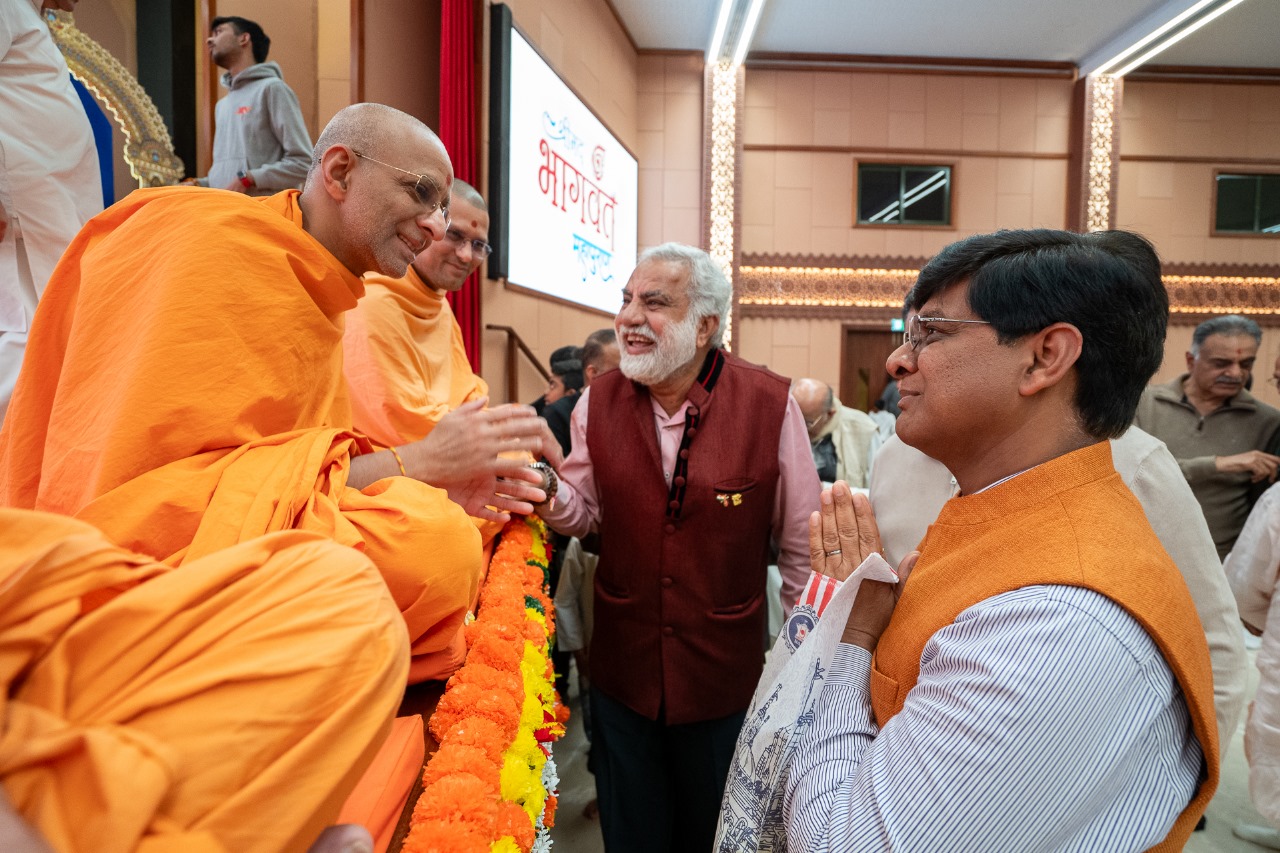
Why Shravan Matters
The spiritual significance of Shravan is tied to one of Hindu mythology’s central stories, the Samudra Manthan, or the churning of the cosmic ocean.
According to the scriptures, both the Gods (Devas) and demons (Asuras) joined forces to churn the ocean in search of amrit, the nectar of immortality. But instead, a deadly poison called Halahal emerged.
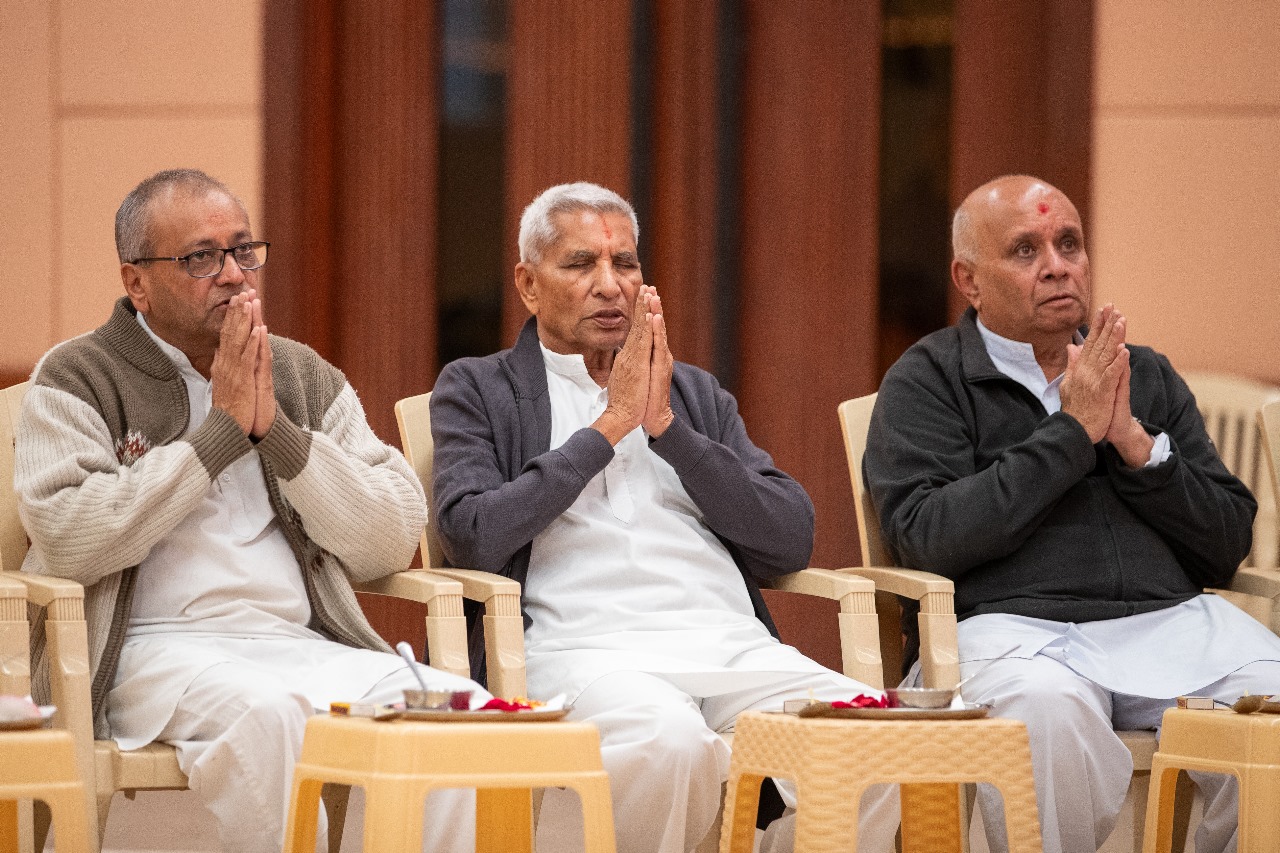
This poison was so powerful that it threatened to destroy all creation.
In an act of ultimate sacrifice, Lord Shiva drank the poison, holding it in his throat to protect the world.
The poison turned his throat blue, earning him the name Neelkanth—meaning “the blue-throated one.” To soothe him, the Gods poured holy water over him.
“This is why during Shravan we offer water, milk, and cooling items to Lord Shiva,” explained Patel.
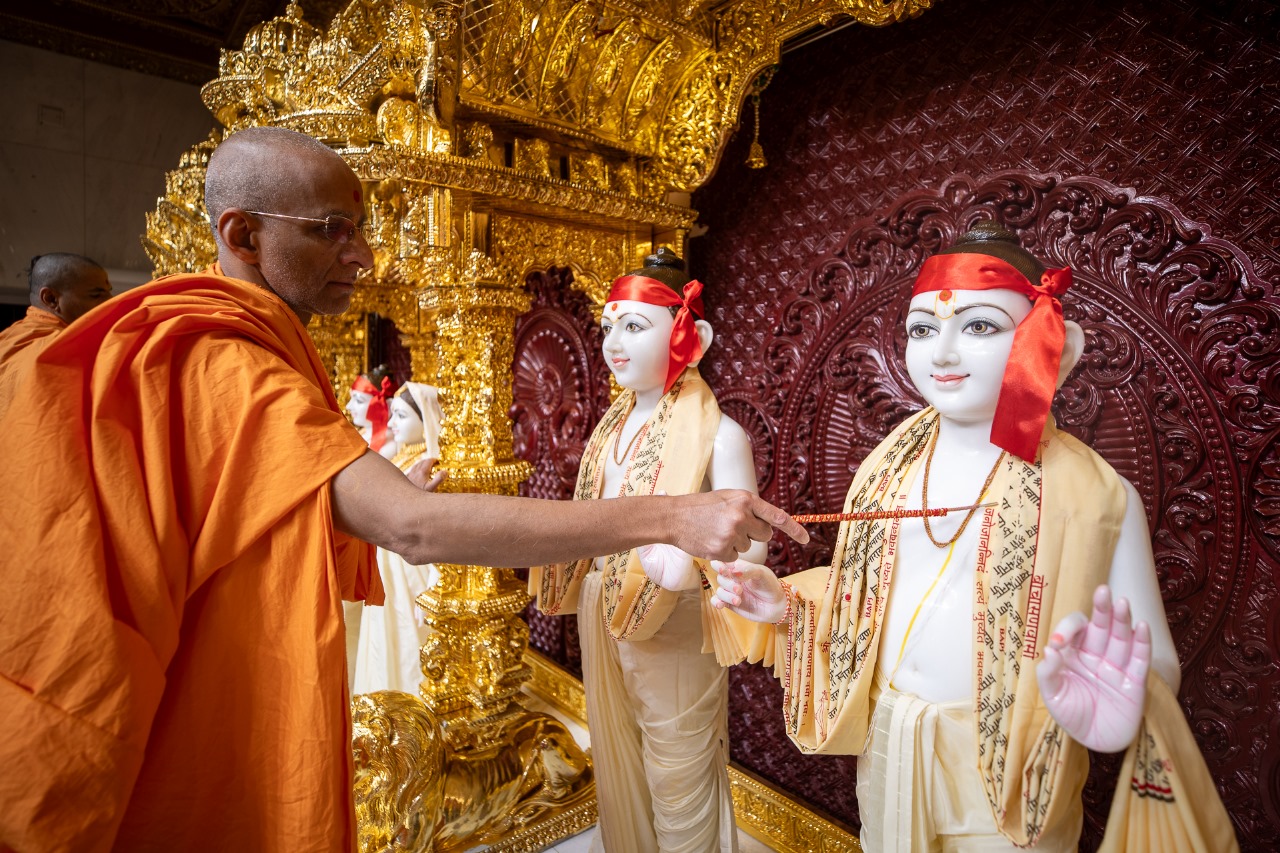
“It’s not just a ritual—it’s our way of remembering his selflessness and courage.”
Across the world, Hindus observe Mondays in Shravan, known as Shravan Somvar, as particularly sacred.
Many devotees fast on these days, adopting a simple plant-based diet, spending time in prayer, chanting holy names, and engaging in charity.
At the BAPS Mandir, devotees are also attending the daily discourses by Pujya Tyagvatsal Swami, who is guiding the community through the philosophical and moral lessons of the Shrimad Bhagwat Mahapuran.
This ancient text is a cornerstone of Vaishnavism, a tradition within Hinduism that focuses on devotion (bhakti) to Lord Vishnu and his incarnations, including Krishna.
“The way Swamiji explains the scriptures makes them easy for us to apply in our lives,” said Patel.
“He doesn’t just tell us what the verses mean—he tells us how to live them.”
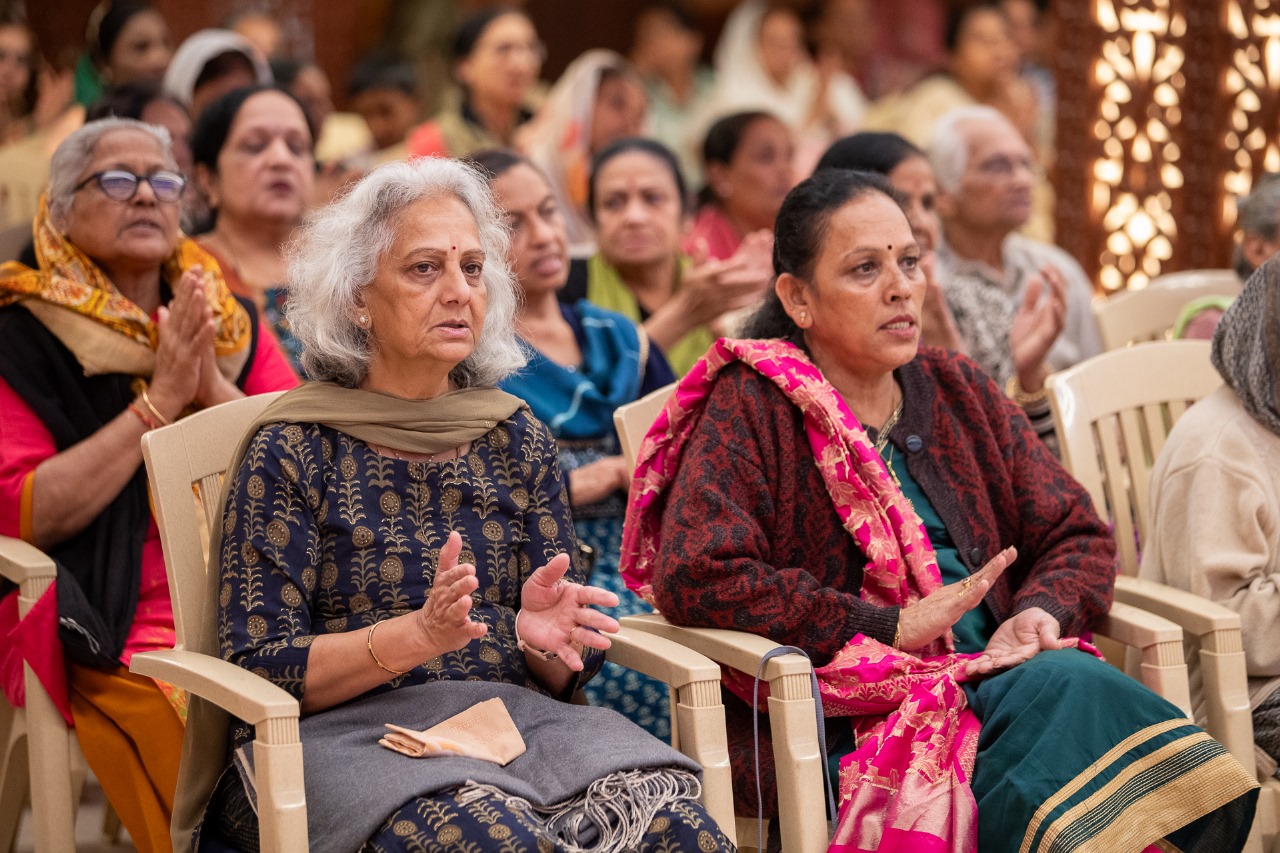
This year’s Shravan celebrations at the Nairobi Mandir are especially significant as the temple marks its 26th anniversary.
Over the years, it has become a centre not just for worship but also for cultural preservation, social service, and interfaith dialogue in Kenya.
“The temple is more than a place of prayer,” Patel said. “It’s a home for our values, our culture, and our shared hope for a better world.”
The month of Shravan also coincides with the monsoon season in India, a time of renewal and fertility.
Traditionally, the dietary guidelines during Shravan encourage lighter, plant-based meals, which align with seasonal produce and help reduce the risk of waterborne diseases that are common during the rains.
“This connection to nature is one of the most beautiful parts of our faith,” Patel observed. “Our spiritual practices are designed to keep both the body and the soul healthy.”
Universal Message
While Shravan is rooted in Hinduism, its themes, self-discipline, compassion, renewal, and gratitude, resonate beyond religious boundaries.
The acts of fasting, reflecting, and giving back to the community are values found across faiths.
“Even if someone doesn’t follow Hinduism, the message of Shravan, living with mindfulness and kindness, can inspire anyone,” Patel noted.
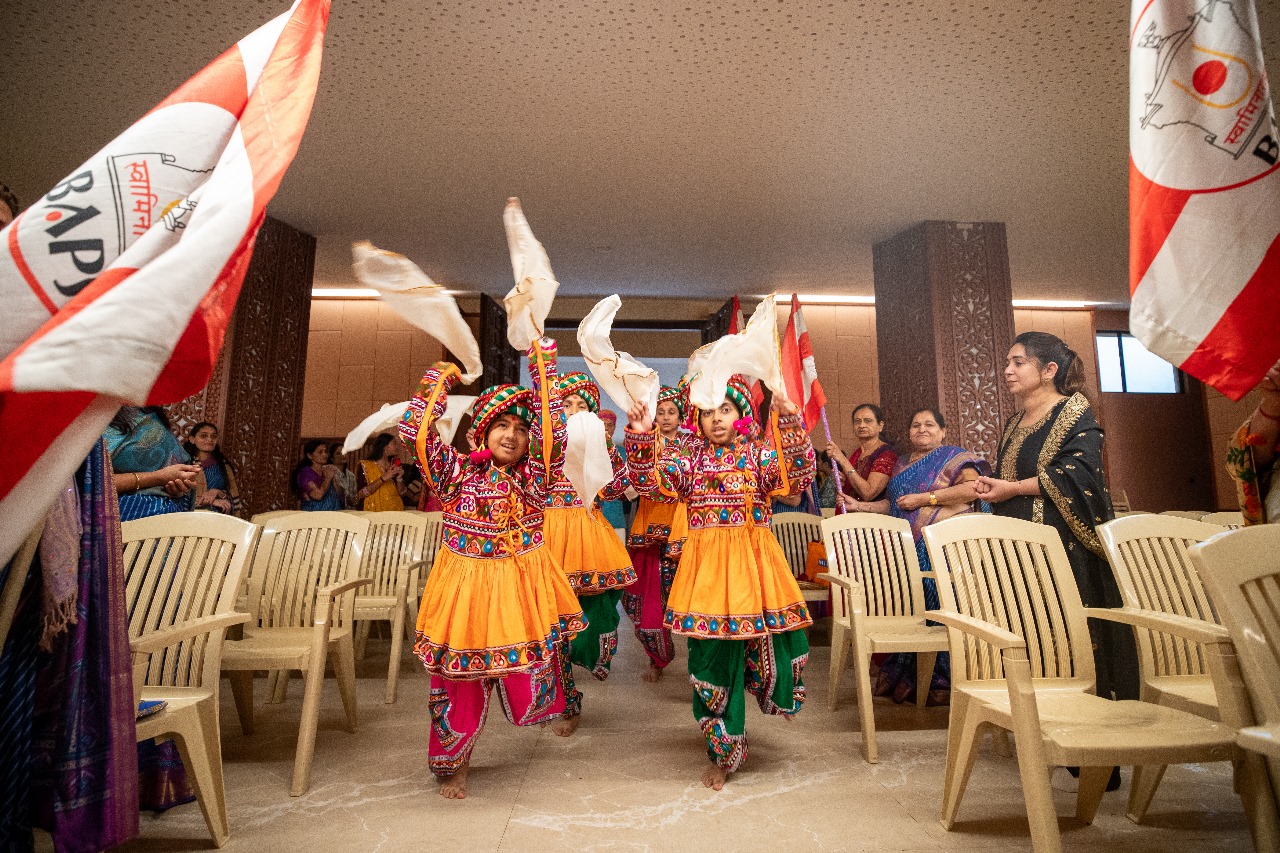
As the Nairobi Hindu community gathers in devotion, the teachings of Pujya Tyagvatsal Swami and the spirit of Shravan serve as a reminder that ancient traditions can thrive in modern cities.
In the heart of Kenya’s capital, faith continues to find expression in both age-old rituals and in the quiet, personal choices of everyday life.
“This is a season for the soul,” Patel reflected.
“The rains renew the earth, and Shravan renews the heart.”
Instant analysis
The Nairobi BAPS Shri Swaminarayan Mandir’s Shravan celebrations blend deep-rooted tradition with contemporary community life. Centred on Pujya Tyagvastal Swami’s discourses on the Shrimad Bhagwat Mahapuran, the event draws spiritual meaning from Lord Shiva’s selflessness in Hindu mythology. Rituals like fasting, plant-based diets, and offerings foster discipline, compassion, and harmony with nature. The 26th anniversary of the temple underscores its role as a cultural and social hub for Kenya’s Hindu community. Beyond religion, Shravan’s themes of reflection, gratitude and service resonate universally, offering a counterbalance to modern life’s pace and reaffirming the timeless relevance of spiritual traditions in an urban setting.



















